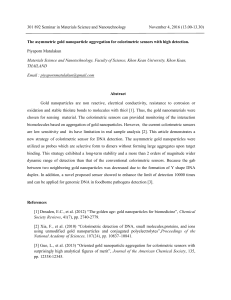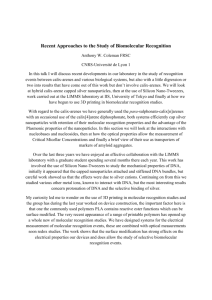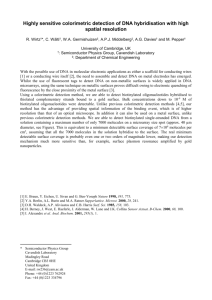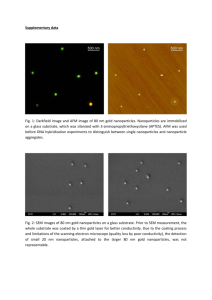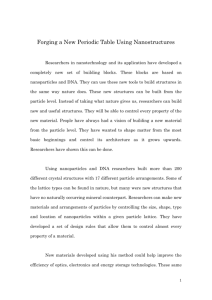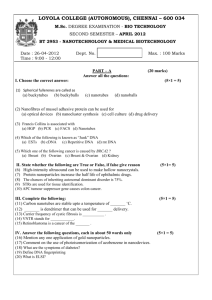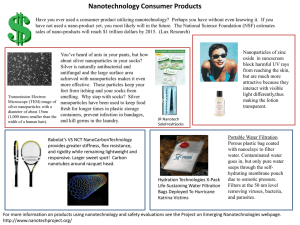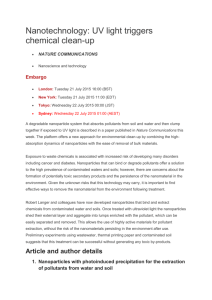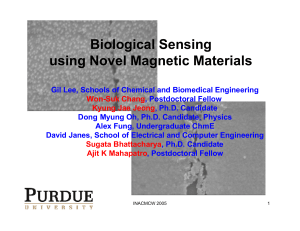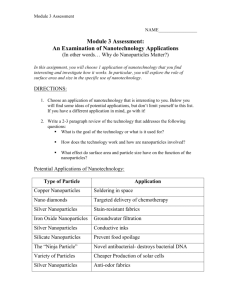MSc in Biotechnology Dissertation Project – 2nd Cycle Aprovado
advertisement
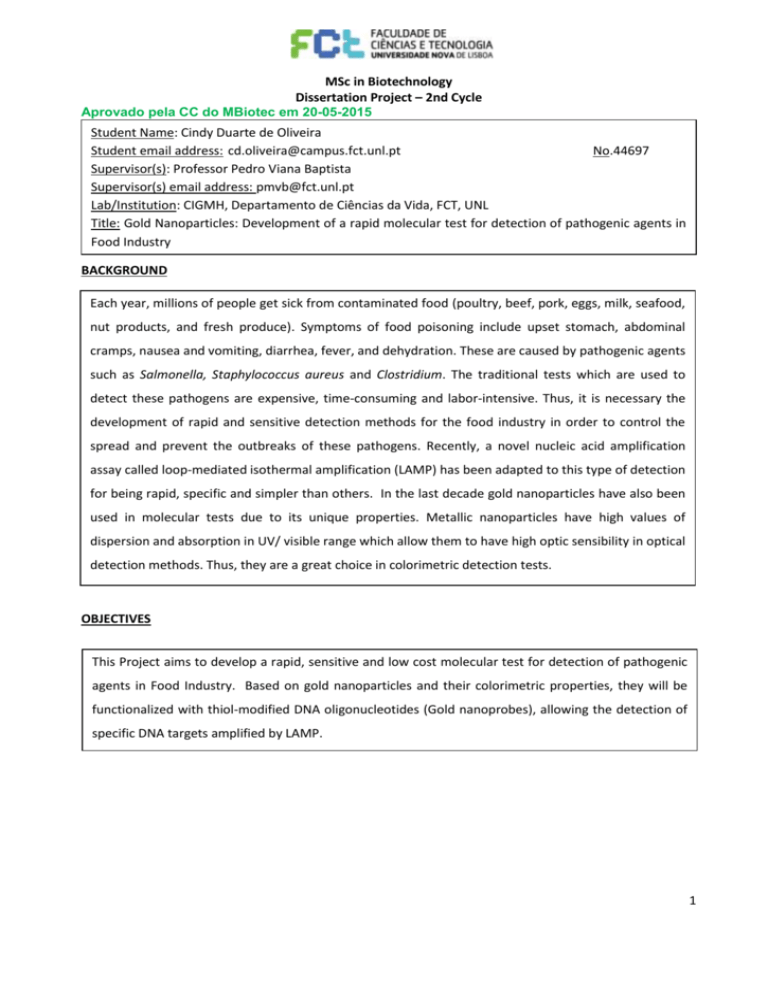
MSc in Biotechnology Dissertation Project – 2nd Cycle Aprovado pela CC do MBiotec em 20-05-2015 Student Name: Cindy Duarte de Oliveira Student email address: cd.oliveira@campus.fct.unl.pt No.44697 Supervisor(s): Professor Pedro Viana Baptista Supervisor(s) email address: pmvb@fct.unl.pt Lab/Institution: CIGMH, Departamento de Ciências da Vida, FCT, UNL Title: Gold Nanoparticles: Development of a rapid molecular test for detection of pathogenic agents in Food Industry BACKGROUND Each year, millions of people get sick from contaminated food (poultry, beef, pork, eggs, milk, seafood, nut products, and fresh produce). Symptoms of food poisoning include upset stomach, abdominal cramps, nausea and vomiting, diarrhea, fever, and dehydration. These are caused by pathogenic agents such as Salmonella, Staphylococcus aureus and Clostridium. The traditional tests which are used to detect these pathogens are expensive, time-consuming and labor-intensive. Thus, it is necessary the development of rapid and sensitive detection methods for the food industry in order to control the There tjh and prevent the outbreaks of these pathogens. Recently, a novel nucleic acid amplification spread assay called loop-mediated isothermal amplification (LAMP) has been adapted to this type of detection for being rapid, specific and simpler than others. In the last decade gold nanoparticles have also been used in molecular tests due to its unique properties. Metallic nanoparticles have high values of dispersion and absorption in UV/ visible range which allow them to have high optic sensibility in optical detection methods. Thus, they are a great choice in colorimetric detection tests. OBJECTIVES This Project aims to develop a rapid, sensitive and low cost molecular test for detection of pathogenic agents in Food Industry. Based on gold nanoparticles and their colorimetric properties, they will be functionalized with thiol-modified DNA oligonucleotides (Gold nanoprobes), allowing the detection of specific DNA targets amplified by LAMP. 1 MSc in Biotechnology Dissertation Project – 2nd Cycle PROJECT DESCRIPTION The Project will involve: I) In silico design of probes with the ideal characteristics (sequence, hybridization) to detect the intended targets; II) Synthesis and functionalization of AuNPs with thiolated oligonucleotides; III) Characterization of Au-nanoprobes for non-cross-linking based DNA detection; IV) LAMP design and optimization for DNA retrieved from potential pathogenic agents (S. aureus, Salmonella sp….); V) LAMP coupled with Au-nanoprobe performance assessment; VI) Validation against PCR gold-standard (collaboration with SME); VII) Thesis writing. 2
